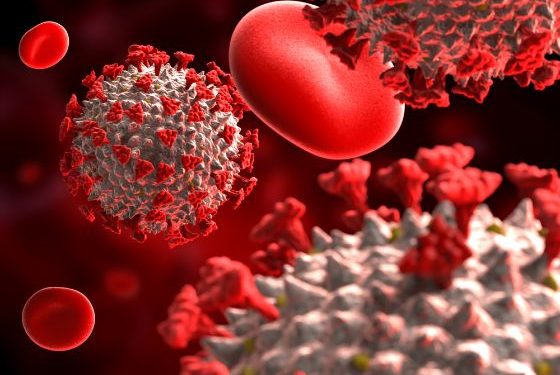Chronic myelogenous leukemia (CML) is a type of blood cancer. It affects white blood cells, which help fight infections and form blood clots. In CML, part of a gene called BCR-ABL is mutated. The mutated gene makes a protein that causes the abnormal white blood cells to grow. These abnormal white blood cells are called blast cells and they are found in the bone marrow. The healthcare team uses special tests to look for blast cells in the blood and bone marrow to diagnose CML.
Most people with CML have few or no symptoms in the early stages of the disease. It is often discovered during a physical exam or routine blood test. These tests can show that the white blood cell count is high or that the number of red blood cells and platelets are low.
Symptoms of CML can vary and may include fatigue, weakness, loss of appetite, weight loss, night sweats, fever, bone pain or a feeling of fullness in the area below the ribs on the left side of the belly (spleen). Some people also have bleeding problems, such as easy bruising and bleeding.
In the earliest stage of CML, fewer than 10% of the cells in the blood and bone marrow are blast cells. This stage is called chronic phase. People who are treated during this time have a very good chance of surviving, especially if they are given drugs that are known to work well in the chronic phase.

Some people with CML will develop a more aggressive phase of the disease, which is called transitional or accelerated phase. In this phase, the blast cells grow faster than the healthy blood cells and they start to crowd out the normal cells in the bone marrow. This reduces the number of normal white blood cells and platelets, leading to infections, anemia and bleeding problems. People with CML in this phase have a poorer chance of survival.
The most common treatment for CML is a drug called imatinib. It is taken as a capsule twice a day. The healthcare team monitors the cancer and your response to treatment with regular blood tests and tests of your bone marrow. This medicine is usually taken for life.
Other treatments for CML can include radiation therapy and stem cell transplantation. Stem cell transplantation involves replacing the unhealthy blood cells with healthy stem cells from another person. This type of transplant is only used for some patients with CML and it requires a lot of care.
It is important to keep up with your treatment plan for CML to improve your chances of staying in remission. Talk to your doctor about what options are best for you and what to expect from each one. It is important to stay committed to your treatment plan, even if you have some unpleasant side effects. It will be worth it in the long run! Also, it is important to learn as much as you can about your condition and how to manage it.









